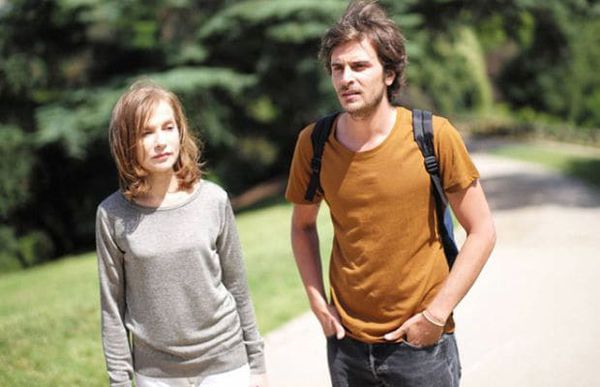Eye For Film >> Movies >> Things To Come (2016) Film Review
Things To Come
Reviewed by: Anne-Katrin Titze

The shifts in human interactions as we age are a main thrust. How does the universal inform the specific? Mia Hansen-Løve uses a fine-toothed comb in the interplay of acting, plot, mood, so that she catches revealing nuances of dread and relief. Things considered eternal turn out not to be and sometimes it happens that you miss a house more than a person. The box is open. The cat of nine lives is curious - more killer than ready to be killed. Freedom and loneliness enter into a fight. In times of transition, shields can be difficult to find.
L'Avenir, wisely titled Things To Come for the English market, stars Isabelle Huppert at her subtle best as philosophy teacher Nathalie, whose life is thrown into turmoil. Her mother [Edith Scob], an elegant pest, calls Nathalie with panic attacks at 5:00am, regularly alerts the local fire brigade, or buys expensive Barbara Bui jackets in the wrong size. She is lonely and losing it and her daughter knows it. On the professional front, students at the school she is teaching at are on strike in protest and the publishers want to redesign her philosophy textbook for the new edition, to "humanise" it with garish colour designs to be better in tune with "market expectations."

Immanuel Kant's "the starry sky above" and "the moral law within" may awe Heinz (André Marcon), her husband of a quarter century, most, but they do not keep him from having an affair. He tells Nathalie - when pressured by their almost adult children to be a man and make a decision - that he is leaving her for another woman. "I thought you'd love me forever," is her stunned response.
Huppert is perfect - no trace of self-pity waters down the complicated emotions at work. No pouring wine, popping pills, bonding with friends - often invented for just such a scene - or going on bad dates - cinematic grief shortcuts are gracefully avoided. Nathalie visits a former student of hers, Fabien (Roman Kolinka), at his commune in the mountains and takes with her Pandora, the irresistibly named black cat she inherited from her mother after her move to a nursing home. The "total freedom" she did not ask for seems to be too much at times.
The mother's cat is too heavy and stubborn to love [tough talk comes easy, though]. The regrettable bouquet of flowers left by her soon to be ex-husband is too big to fit into the kitchen garbage can. The filmmaker remarkably places this unwanted surplus into the world surrounding Nathalie.
The stranger complimenting her while she flees from his inappropriate advances in a movie theatre during a screening of Abbas Kiarostami's Certified Copy is much too randomly forward. The too muchness or too littleness of her encounters is accompanied by music that is just right. Hansen-Løve, here even more than in Goodbye First Love (Un Amour De Jeunesse) or Eden uses songs in the most honest, straight forward and effective way.
Be it Franz Schubert's Auf Dem Wasser Zu Singen (To Sing On Water) or Woody Guthrie or Huppert whispering a lullaby - the choice becomes the only possible choice. Especially Schubert's approach on the passing of time elevates the insights and lets us take flight with the swans.
Reviewed on: 19 Sep 2016
















